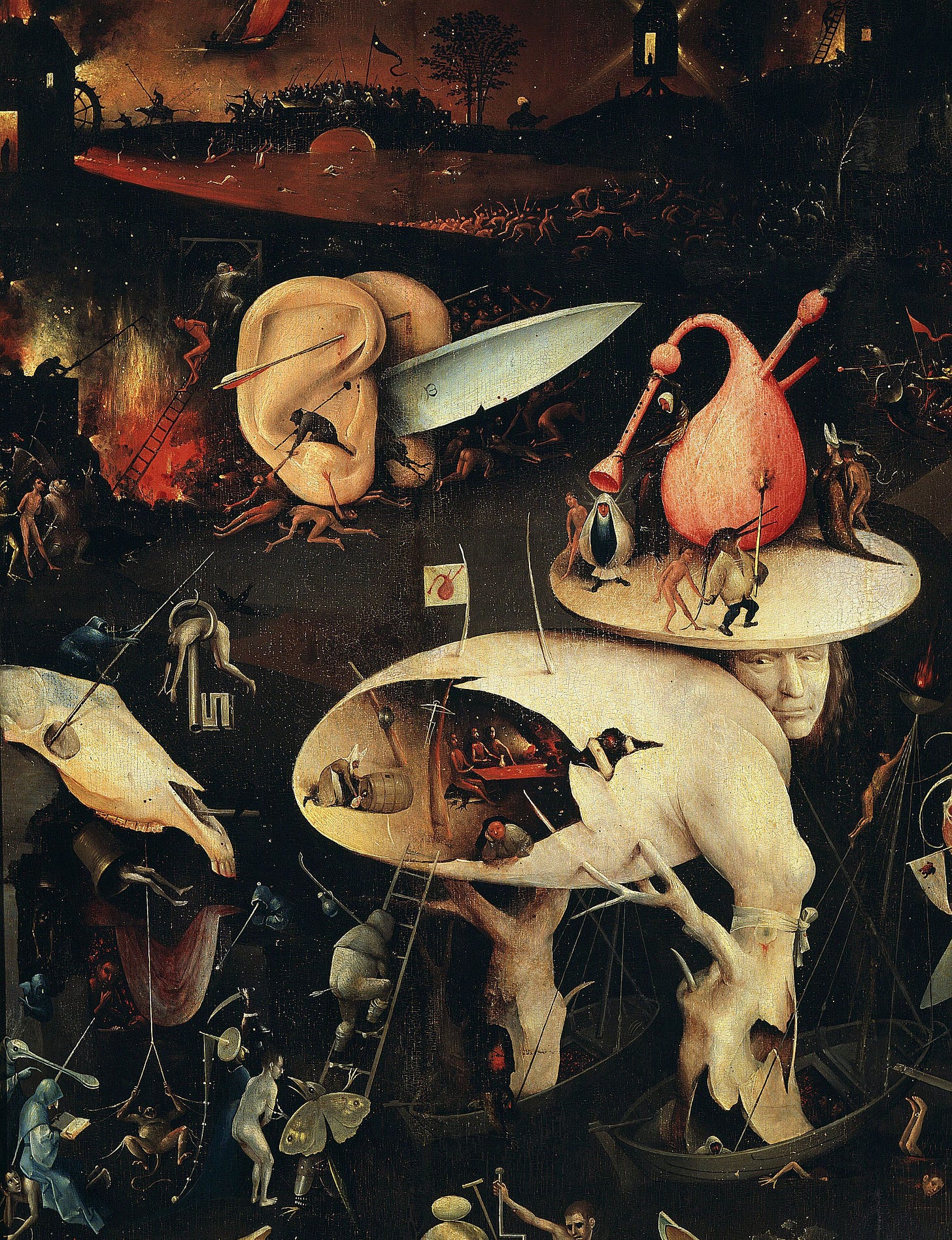For a long time, speech-to-text was rubbish. Fascinating that it could be done. A neat toy. Still rubbish.
Then it got alright and people would say things like: ‘You know what? It’s alright.’
Then it got really very good.
And then 2022 happened, and I spent the first six months of the year trying to get AI image generators to show me what ‘an empty sheep’ looks like. I produced many forlorn and blurry sheep standing alone in fields, often near a hedge.
This is because a lot of photographers of sheep, emptiness and hedges whose work was online was taken by computers regardless of copyright. It was then recombined for my joy. Meanwhile, artists, including but not limited to empty sheep photographers, were correctly livid to have their work stolen.
Music followed. The toys that let you make any mood of music to bed under your YouTube video was diverting for a shorter while. There are only so many bleak baaahs I could listen to before getting bored.
Then ChatGPT. Suddenly everywhere. Writing fanfiction about sheep and the void inside.
And then, I suspect, the development of new AI tools splintered. Every professional was in different ways subjected to umpteen adverts about how computers could make them obsolete.
That’s what’s happened to me.
My corner of the internet is home to a lot of very worried voiceover workers. Text-to-speech is now not only very good, it is competing as a player in the voiceover industry.
Voices.com sparked alarm buying Voices.ai. They released a statement about what they would do with the voices already on their site to try to calm everyone. Fine print is sexy.
Here’s a typical ad from my feed.
I hear and read a lot of answers to this along the lines of ‘this will never replicate real voices’ or ‘you just can’t get the subtlety of the human experience with a computer’. Maybe? I have no idea. I’m not sure how any of us can know.
What I believe is that for a lot of small businesses, being able to choose your telephony or e-learning voice from a not-great-but-good-enough list of cheap computer generated options is going to be attractive.
I don’t think it’s the high end big money work that will be most affected. It’ll be the smaller work, the everyday boring grind that doesn’t pay loads but keeps voiceovers going. The stuff that you might be tempted to turn to Revoicer or one of their competitors for.
So far so troubling but what about live action? WHAT ABOUT THE DAMN THEATRE?
Live action AI is currently a bit off. Have you seen that AI beer advert doing the rounds? Shades of Hieronymus Bosch.
But live action AI will get better. It will look good. It will sound good. It may even act good.
People with big money will have access to it first. Then, before you know it, there will be an app. Or a plugin. Or a filter.
And just as we’re seeing voiceover AI go for the lower cost end of the market, live action AI will too. That means the smallest roles. Extras, featured extras, walk-ons, then what they call co-stars in America (five lines or less). Characters with descriptions like Woman, 30s or Troubled Passenger or Proud Grandfather. These are the parts that keep us going, that give actors their first credits and help us build a CV.
If it becomes more practical to slot those parts in with a computer than bring in a person… gulp.
And then, yes, there will be a big film with an AI lead and maybe some company will get famous for making a host of AI avatar actors and the line between animation and gaming and live action will disappear entirely… but I think that’s a way off and in a way it’s its own thing because it will be marketed as such.
It’s the smaller stuff that interests me.
What can we do about it?
Survival
I see two ways around this nightmare: culture and paperwork, and we need both.
Let’s get the paperwork out of the way.
What is happening in voiceover will happen in a much bigger way in the live action space. As soon as it becomes apparent that you can generate an actor instead of casting one, huge efforts will be made to block it from doing so. We will be looking to contracts to specify that you can’t use somebody’s likeness to make new actors.
Some people will go the other way. They will specify that you can use their likeness, for a price. A new kind of licensing will become common, where the axiom that an actor is their own product will go to the next level - an actor is their own IP. To sell, or not, as they see fit.
Like FIFA but for everything.
As I write, we are on day four of the American writers’ strike. Regulating AI writing is a part of those stalled negotiations. Unions will play a huge part of this.
So what can you do right now? If it’s within you means, check your Equity subscription. Read the literature when it comes out. Keep up to date.
And then there’s the culture.
This is at heart a story of industry automation. It’s happened to other creative work. But until now, the concept of replacing actual actors seemed sci-fi.
To get a clue, we need to look at what happened to other industries. I always think of acting as most similar to things like carpentry so let’s use that as an example.
Today, if you buy a bookcase, you can buy one from IKEA or their rivals. Or you can buy one from a carpenter. But before factory-made furniture, carpenters were the only option. Now, we have two options: automated or artisanal. And they have come to serve different needs.
Let’s say no regulation happens at all and we end up in a world of computer-made actors. (I find this unlikely but go with me for the thought experiment). Well, then those who hire us will have a choice: AI or a genuine human? Automated or artisanal.
Today, when we hire a carpenter, we do so believing that it will a) be more expensive than IKEA and b) higher quality. But also, in a way, more human.
There’s something intangible - and very marketable - about looking at a piece of handcrafted furniture and knowing that it was made by a person. We expect the table we bought to outlive us. It’s an investment. Perhaps a work of art. Certainly an expression of the person we bought it form. When buying from an artisan, we choose to accept their taste and judgement as worthwhile.
The same will be true of actors, even more so than today. We will come to value the humanity of the actor more. We will come to value their story, their craft, their taste.
And with that will come a new wave of celebrity power. Actor as craftsperson will become an increasingly sought after selling point. I wonder if we won’t start putting BTS photographs of rehearsal rooms on our CVs.
So, culturally, I think what we can do is shift our mindsets from product to artisans. We are trained to remember that we are what we sell, to keep our bodies and skills sharp as they’re what they consumer is hiring. But if we find ourselves competing with AI for that same space, we have to lean into what puts us apart: our humanity. Our story, our judgement, our taste. People will always want craft.
Oh and the damn theatre? People go to the damn theatre to see live damn performance. It’s going nowhere, baby.








Another excellent piece! I feel duty-bound as a contrarian to spoil everything!
I think virtual Abba has demonstrated that audiences are happy enough to see a facsimile of their favourite memories of their favourite artists. Is it unforeseeable that Freddie Mercury / Elvis avatars would block book all the venues in the country until there’d be no actual space for human performers to showcase their abilities, emotions or pulses?